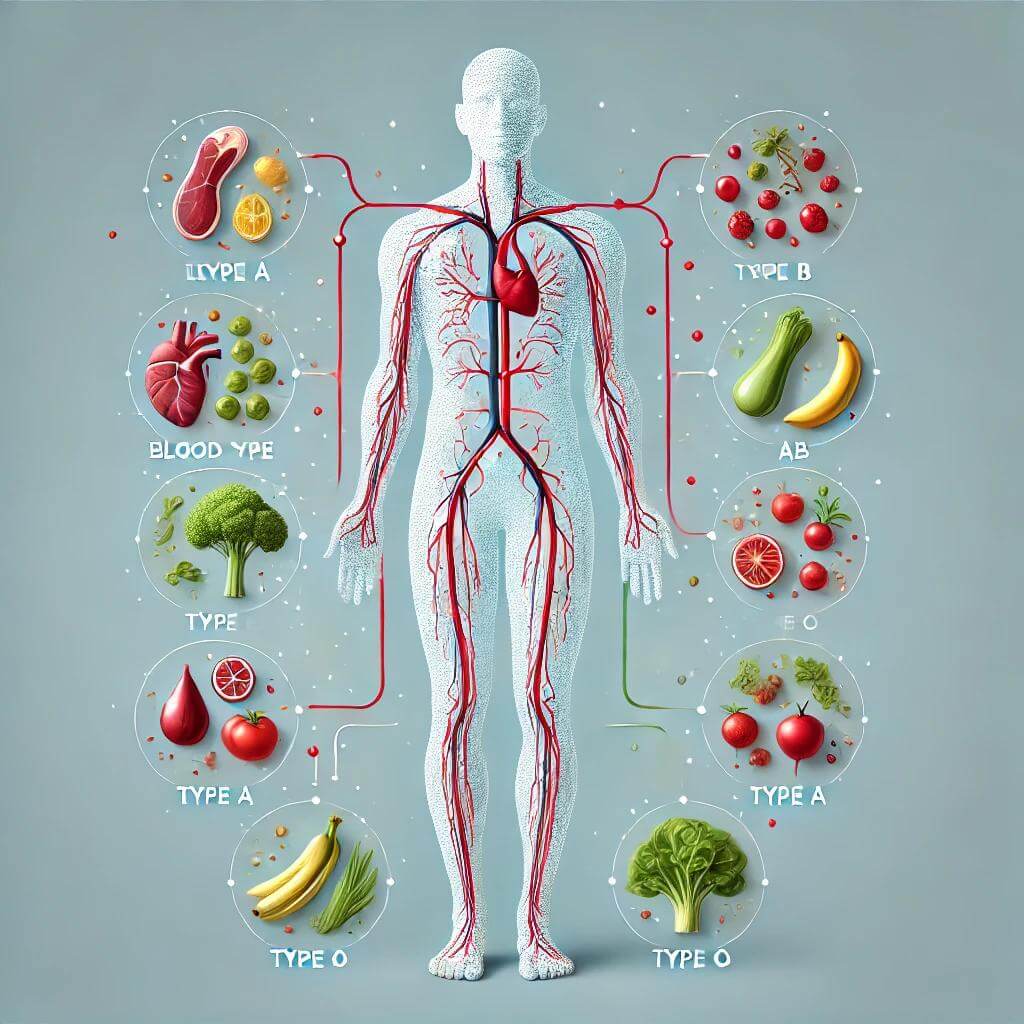The Ultimate Guide to 16/8 Intermittent Fasting: Benefits, Risks…
The 16/8 Intermittent Fasting diet is a popular eating pattern where you fast for 16 hours and eat all your meals within an 8-hour window. This method restricts your eating period to a specific time frame each day, which can help improve metabolic health, aid in weight loss, and simplify meal planning.
What Lies Behind the 16/8 Diet?
The 16/8 Intermittent Fasting (IF) diet is based on the principle of time-restricted eating. By limiting the eating window to 8 hours and fasting for the remaining 16 hours of the day, this diet aligns with our body’s natural circadian rhythm. This fasting method is thought to optimize metabolic processes, improve insulin sensitivity, and promote fat burning.
How it Works:
- Insulin Levels: Fasting helps lower insulin levels, which can increase the body’s ability to burn fat. When you eat, insulin levels rise to help process glucose. During fasting periods, lower insulin levels allow the body to use stored fat for energy.
- Cellular Repair: Fasting triggers autophagy, a process where cells remove damaged components and recycle them. This can contribute to improved cellular health and potentially reduce the risk of chronic diseases.
- Hormonal Balance: Fasting can increase the levels of growth hormone, which aids in fat loss and muscle gain. It also helps regulate the hormones responsible for hunger and satiety, potentially reducing overeating.
Why It Has Become Popular in Recent Years
- Simplicity and Flexibility: The 16/8 diet is straightforward and flexible, making it easy for many people to integrate into their daily lives. Unlike other diets that require counting calories or eliminating certain food groups, the 16/8 method focuses on when you eat rather than what you eat.
- Scientific Research: There has been an increase in scientific studies supporting the health benefits of intermittent fasting. Research has shown that intermittent fasting can lead to weight loss, improve metabolic health, and even extend lifespan in animal models. These findings have contributed to the diet’s credibility and popularity.
- Lifestyle Compatibility: Many people find the 16/8 diet easier to maintain compared to other dieting methods. It allows for regular meals within the eating window, making it less restrictive and more socially acceptable. People can still enjoy their favorite foods, as long as they are consumed within the designated timeframe.
- Influencer Endorsements: High-profile endorsements and social media have played a significant role in popularizing the 16/8 diet. Celebrities, fitness trainers, and wellness influencers often share their success stories and promote the diet on platforms like Instagram and YouTube, reaching millions of followers.
- Health and Wellness Trends: The rise of health and wellness culture has contributed to the popularity of the 16/8 diet. As more people seek sustainable and effective ways to improve their health and manage weight, intermittent fasting has emerged as a viable and appealing option.
- Positive Anecdotal Evidence: Many individuals report positive experiences with the 16/8 diet, including weight loss, increased energy, and improved mental clarity. These personal testimonials can be very persuasive and encourage others to try the diet for themselves.
- Research-Backed Benefits:
- Weight Management: Helps control calorie intake and promotes fat loss.
- Improved Insulin Sensitivity: Beneficial for managing blood sugar levels.
- Heart Health: May reduce risk factors like blood pressure and cholesterol levels.
- Brain Health: Potentially enhances cognitive function and protects against neurodegenerative diseases.
- Longevity: Animal studies suggest intermittent fasting may increase lifespan.
In summary, the 16/8 diet has gained popularity due to its simplicity, scientific backing, flexibility, and the growing wellness culture. As more people experience and share the benefits of this eating pattern, its appeal continues to spread.
What is 16/8 Intermittent Fasting?
Definition and Principles
The 16/8 Intermittent Fasting diet involves fasting for 16 hours each day and confining your eating to an 8-hour window. This method can be easily adapted to fit different lifestyles and preferences. For instance, you might choose to eat between 12 PM and 8 PM or 10 AM and 6 PM.
How to Perform and Recommended Practices
- Choose Your 8-Hour Eating Window: Common windows include 12 PM to 8 PM, 10 AM to 6 PM, or 1 PM to 9 PM.
- Gradual Adjustment: If you’re new to fasting, begin with a 12-hour fasting window and gradually increase it to 16 hours.
- Stay Hydrated: Drink plenty of water, herbal teas, and black coffee during fasting hours.
- Balanced Meals: During the eating window, consume balanced meals with adequate proteins, healthy fats, and complex carbohydrates.
- Listen to Your Body: Adjust the fasting and eating window according to your comfort and lifestyle.
Recommended Nutrition During the Diet
Recommended Foods
- Proteins: Lean meats, fish, eggs, legumes, and tofu.
- Healthy Fats: Avocado, nuts, seeds, olive oil, and fatty fish.
- Complex Carbohydrates: Whole grains, vegetables, fruits, and legumes.
- Fiber: Vegetables, fruits, whole grains, and legumes.
Practical Nutrition Tips
- Meal Prep: Prepare balanced meals in advance to avoid unhealthy choices.
- Avoid Empty Calories: Focus on nutrient-dense foods rather than empty calories.
- Mindful Eating: Pay attention to hunger cues and eat slowly during the eating window.
Advantages of the 16/8 Diet
Health Benefits
- Weight Loss: Helps reduce calorie intake and promotes fat burning.
- Improved Metabolic Health: Enhances insulin sensitivity and lowers blood sugar levels.
- Reduced Inflammation: May decrease inflammatory markers in the body.
General Benefits
- Simplified Eating Routine: Reduces the need for constant meal planning and snacking.
- Enhanced Mental Clarity: Many report improved focus and concentration during fasting hours.
- Longevity: Animal studies suggest intermittent fasting may promote longevity and improve health span.
Disadvantages of the 16/8 Diet
Health Disadvantages
- Hunger and Cravings: Initial hunger pangs and cravings can be challenging.
- Impact on Specific Health Conditions: Those with certain medical conditions should avoid it.
General Disadvantages
- Social Constraints: Fasting periods may interfere with social meals and events.
- Rigidity: Some people may find the strict eating window difficult to maintain.
Practical Tips and Advice
- Start Slowly: Gradually increase fasting hours to allow your body to adjust.
- Meal Prep: Prepare balanced meals in advance to avoid unhealthy choices.
- Stay Hydrated: Drink plenty of fluids during fasting periods.
- Avoid Empty Calories: Focus on nutrient-dense foods rather than empty calories.
- Mindful Eating: Pay attention to hunger cues and eat slowly during the eating window.
Key Considerations in Choosing the Method
- Lifestyle Compatibility: Ensure the fasting window fits your daily routine.
- Health Status: Consult with a healthcare professional if you have any medical conditions.
- Nutritional Balance: Plan meals to meet nutritional needs.
- Long-Term Sustainability: Choose a fasting schedule you can maintain long-term.
- Personal Preferences: Adapt the fasting schedule to suit your personal preferences and lifestyle.
Misconception: Eating Anything You Want During the Eating Window
One common misconception about the 16/8 Intermittent Fasting diet is that it allows you to eat whatever you want during the eating window without any consequences. While the 16/8 diet does offer flexibility in food choices, it is important to maintain a balanced and nutritious diet for several reasons.
- Nutritional Deficiency:
- Quality of Calories: Consuming nutrient-poor, high-calorie foods like junk food, sugary snacks, and processed meals can lead to nutritional deficiencies. Your body needs a variety of vitamins, minerals, and other nutrients to function optimally, which cannot be provided by unhealthy food choices.
- Long-Term Health: Poor dietary habits can lead to deficiencies in essential nutrients such as vitamins, minerals, fiber, and healthy fats, ultimately compromising overall health and well-being.
- Weight Gain:
- Caloric Surplus: Even though the eating window is restricted, overeating during this period can result in a caloric surplus, which may lead to weight gain rather than weight loss. Consuming large amounts of high-calorie, low-nutrient foods can negate the calorie deficit created by fasting.
- Poor Eating Habits: Relying on unhealthy foods can perpetuate poor eating habits and make it difficult to achieve and maintain a healthy weight.
- Blood Sugar Levels:
- Insulin Spikes: Eating large amounts of sugary or high-glycemic foods can cause significant spikes and crashes in blood sugar levels. This can be particularly detrimental for individuals with insulin resistance or diabetes.
- Energy Fluctuations: These blood sugar fluctuations can lead to energy highs and lows, affecting mood, concentration, and overall energy levels.
- Digestive Health:
- Digestive Issues: Consuming processed and unhealthy foods can lead to digestive problems such as bloating, constipation, and discomfort. A diet high in fiber, fruits, vegetables, and whole grains is essential for maintaining healthy digestion.
- Gut Health: The quality of your diet has a direct impact on gut health. A poor diet can disrupt the balance of gut microbiota, leading to issues like inflammation and a weakened immune system.
- Long-Term Risks:
- Chronic Diseases: A diet high in processed foods, sugars, and unhealthy fats is linked to an increased risk of chronic diseases such as heart disease, diabetes, and certain cancers.
- Sustainable Habits: Developing healthy eating habits during the eating window can promote long-term health and make the fasting protocol more sustainable.
Importance of a Balanced Diet During the Eating Window
To maximize the benefits of the 16/8 diet and avoid potential risks, it’s crucial to focus on the quality of the foods consumed during the eating window:
- Nutrient-Dense Foods: Prioritize whole, unprocessed foods such as lean proteins, healthy fats, whole grains, fruits, and vegetables.
- Balanced Meals: Aim for balanced meals that include a combination of macronutrients—proteins, fats, and carbohydrates—to keep you satisfied and nourished.
- Hydration: Drink plenty of water throughout the day to stay hydrated and support overall health.
- Moderation: While occasional treats are fine, they should not make up the bulk of your diet. Practice moderation and mindful eating.
Summary and Conclusions
The 16/8 Intermittent Fasting diet is a flexible and effective approach to improve health, lose weight, and simplify eating patterns. It offers numerous benefits, including improved metabolic health, weight loss, and potential longevity. However, it is not without its challenges, such as initial hunger and potential social constraints. By following practical tips and ensuring a balanced diet, individuals can maximize the benefits of this eating pattern. As always, it is essential to consult with a healthcare professional before starting any new diet regimen.
FAQ
What can I drink during fasting?
Water, herbal teas, black coffee, and non-caloric beverages.
Can I exercise while fasting?
Yes, but listen to your body and adjust intensity if needed.
What should I eat during the eating window?
Focus on balanced meals with proteins, healthy fats, and complex carbs.
Is 16/8 fasting suitable for everyone?
Not recommended for pregnant women, children, or those with certain health conditions.
Can I take supplements during fasting?
Yes, non-caloric supplements can be taken, but check with a healthcare provider.
Will fasting affect my metabolism?
Short-term fasting may increase metabolism, but prolonged fasting could slow it.
How long should I follow the 16/8 diet?
It can be followed long-term if it suits your lifestyle and health goals.
Can I drink alcohol during the eating window?
Moderation is key; excessive alcohol can negate health benefits.
What if I feel very hungry during fasting?
Start with a shorter fasting period and gradually increase it.
Can 16/8 fasting improve mental clarity?
Many people report improved focus and mental clarity.
Is snacking allowed during the eating window?
Yes, but focus on healthy, balanced snacks.
Can 16/8 fasting help with diabetes management?
It may improve insulin sensitivity, but consult with a healthcare provider.
Will fasting cause muscle loss?
Proper nutrition and strength training can help maintain muscle mass.
How does 16/8 fasting affect sleep?
Some report improved sleep, but individual responses vary.
What are the common mistakes to avoid?
Overeating during the eating window
*Disclaimer: The information provided in this article is for educational and informational purposes only and should not be construed as health advice. The content is solely the personal opinion of the author and is not intended to be a substitute for professional medical advice, diagnosis, or treatment. Always seek the advice of your physician or other qualified health provider with any questions you may have regarding a medical condition or before starting any new diet or treatment. Read more




2 comments